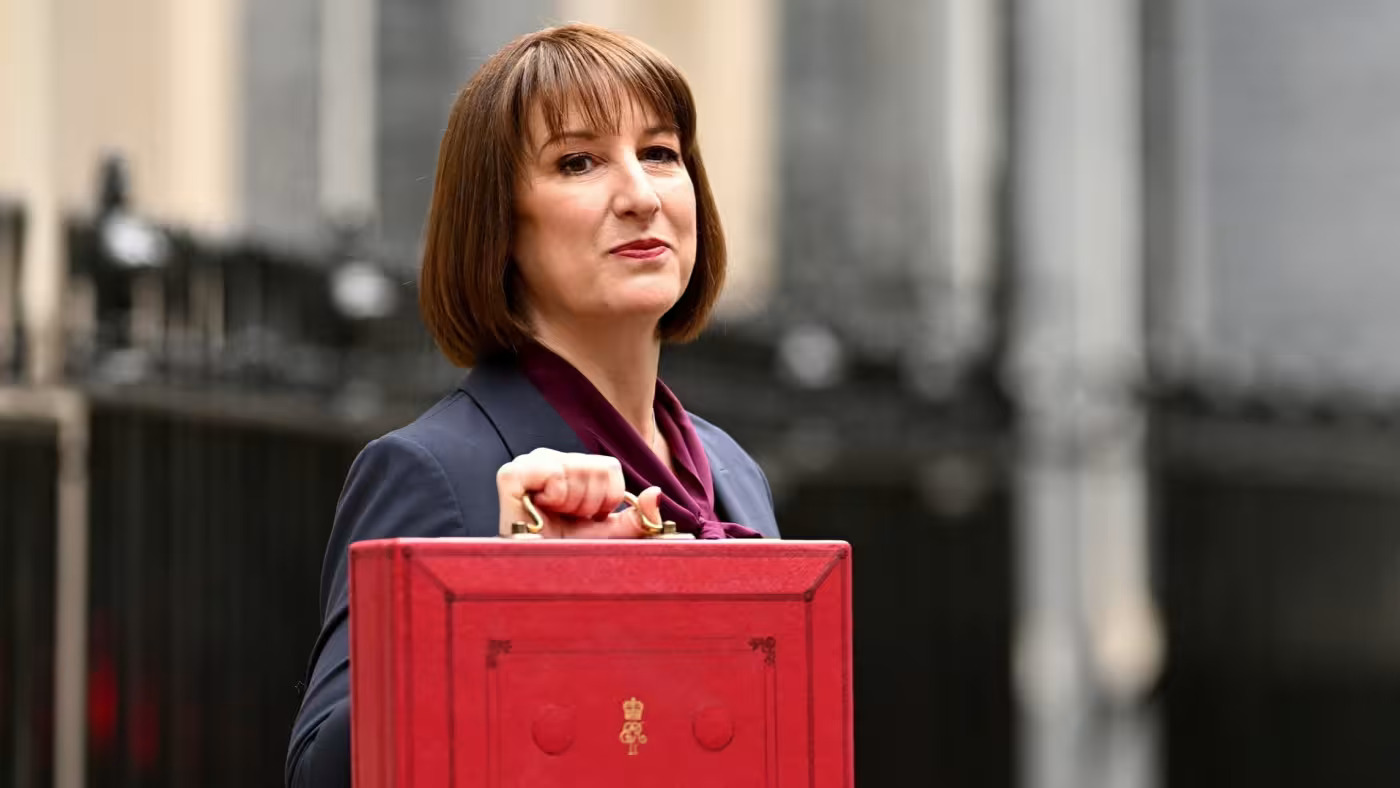During the Autumn Budget 2025 today, Chancellor Rachel Reeves set out the government’s plans for taxation, public spending, and wider economic policy for the year ahead.
The budget was a hot topic in the lead-up to today with businesses, commentators, and the public all watching closely for announcements.
Key 2025 Budget updates
Income Tax
The government has confirmed that the planned changes to Income Tax rates and thresholds, originally due in 2028, will now be maintained for an additional three years (until 2031).
Since the Covid pandemic, there has been a rise in claiming expenses for working-from-home, either from your employer or from HMRC. From April 6th 2026, the government will remove the Income Tax deduction for non-reimbursed expenses. This is set to impact those who may be claiming from HMRC. We are not sure if it will be extended to businesses as disallowed expenses.
National Insurance
The government will maintain National Insurance rates and thresholds for a further three years, from 6 April 2028 until 2031.
Savings tax
Tax rates on savings will increase by 2% across the basic, higher, and additional rates. This change follows the removal of National Insurance on interest from savings. This is expected to take effect from April 2027.
The starting rate for savings will be maintained at £5,000 for 2026-27 and be maintained until 5 April 2031.
Dividend taxes
Taxes on dividend income will be increasing from the current basic and higher rates of 8.75% and 33.75% to 10.75% and 35.75% respectively from April 2026.
The increment is as a result of Dividend income not being subject to National Insurance contributions per the government.
There is also the abolition of Dividend tax credit for non-UK residents. This will mean that Dividends received after a period of temporary non-residence will be chargeable to UK tax. It is expected to take effect from 6 April 2026.
{{ltd-guide}}
Property taxes
Landlords will be paying 2% more on profits within the basic, higher and additional rates as they do not currently pay National Insurance on their profits. That means, landlords will be paying rates of tax at 22%, 42% and 47% from April 2027.
Individual Savings Allowance (ISA)
The ISA cash limit will be £12,000 within the overall £20,000 allowance from 6 April 2027. Those over the age of 65 will be able to maintain the £20,000 cash ISA allowance.
All other allowances will be maintained.
Student loan
The student loan plan 2 repayment threshold is to be maintained at 2026/27 levels for 3 years from 2027/28 to 2029/30 tax years.
Capital Gains Tax
No further changes were announced.
VAT (Value Added Tax)
Taxi and private hire services will be excluded from using the Tour Operators’ Margin Scheme from 2 January 2026, except where these are supplied in conjunction with certain other travel services.
Corporation Tax
The penalty for late submission of Corporation Tax returns will be doubling from 1 April 2026.
Capital Allowances
The 100% first year allowance will be extended for zero emission vehicles until 31 March 2027 (Corporation tax) and 5 April 2027 (Income tax)
There will be a new first-year allowance of 40% for main-rate assets from 1 January 2026.
The main rate writing-down allowances will reduce from 18% to 14% for writing down allowances from 1 April 2026 for Corporation Tax and 6 April for Income tax.
Pensions
The government is set to abolish access to voluntary class 2 NI contributions for those living abroad as an easy route to pension entitlement. It is also increasing the number of years to live and work in the UK to 10 years before being entitled and increasing the contributions they must pay.
There will be a cap on the National Insurance contributions relief on salary sacrifice to the first £2,000 of pension contributions per person from 2029. This means people paying into their pension pot under salary sacrifice schemes to start paying NI on contributions above the £2,000 relief cap from 2029.
{{st-expense-guide}}
Budget updates: taxes, wages, and reliefs.
Fuel duty
The 5p cut in fuel duty will be extended to August 2026. It will then rise from September 2026 back to March 2022 levels by March of 2027
National Living & Minimum Wages
Effective 1 April 2026, the National Living Wage will be increased to £12.71 per hour from April 2026. The National Minimum Wage for 18-20 year olds will be £10.85 and for 16-17 year olds and apprentices will be £8.00.
Inheritance Tax
Unused allowances (£1m) for agricultural and business property reliefs will be transferable between spouses and civil partners. It will be effective from 6 April 2026.
Workplace benefit relief
Income tax and and National Insurance exemption for employer-provided benefits will be extended to cover reimbursements for eye tests, home working equipment, and flu vaccinations. This will be effective from 6 April 2026.
Council tax
Introduction of High Value Council Tax Surcharge to impact those with properties valued at £2m or more in England. They will face an extra council tax surcharge starting from £2,500, rising to £7,500 for properties worth more than £5m from April 2028
Overseas Workday Relief
There will be a limiting of the proportion of earnings an employer can exclude from PAYE under the Overseas Workday relief to a maximum of 30%. This is expected to take effect from 6 April 2026.
Construction Industry Scheme
Pending reforms to tackle fraud set to be implemented by 6 April 2026.
Business rates transitional relief
Relief percent will be will be based on rateable values as follows:
- Up to £20,000 (£28,000 in London): in 2026-27 – 5%, in 2027-28 – 10% (plus inflation), in 2028-29 – 25% (plus inflation).
- £20,001 (£28,001 in London) to £100,000: in 2026-27 – 15%, in 2027-28 – 25% (plus inflation), in 2028-29 – 40% (plus inflation).
- Over £100,000: in 2026-27 – 30%, in 2027-28 – 25% (plus inflation), in 2028-29 – 25% (plus inflation).
Other changes to note:
- Economic Crime Levy - Changes to bands and charges from 1 April 2026.
- New powers for HMRC to go after promoters of tax avoidance.
- Funding for training of apprentices under 25 will be free for Small and Medium sized businesses.
- Electric vehicle and hybrid car drivers will be taxed for using the road from 2028. 3p per mile electric cars, 1.5p per hybrid road pricing on top of road tax.
- Cap limiting households on universal or child tax credit from receiving payments for a third or subsequent child to be scrapped from April.
These updates give an overview of the key measures announced in the 2025 budget. Keeping track of the changes can help you stay informed as they come into effect over the next few years.

.svg)



.webp)














